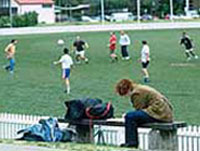|
|||||||||||||||||||||||||||||||||||||||||||||||
| Global Legal Systems in Comparative Perspective - LAWS8118 | |||||||||||||||||||||||||||||||||||||||||||||||

Description This course will focus on a comparative study of the world's major legal traditions, within the Western and Non-Western Legal traditions. The greatest focus will be on a comparative examination of the world's two primary legal traditions, the Civil Law and the Common Law. Together these legal traditions provide the foundation of most of the world’s national legal systems. As an initial matter, the class will examine the essential characteristics of the Civil Law and the Common Law, focusing on each tradition’s history, legal structures, legal actors, procedures, and sources of law. As part of the general examination of these traditions, the class will examine particular systems within those traditions, including the American, English, Scottish, French, and German legal systems. The class will then engage in a shorter comparative examination of the non-Western Legal traditions, which may include the Socialist, Confucian, Islamic, Jewish and Hindu Law systems.
Recommended Prior Knowledge None
Course Aims
Learning Outcomes A candidate who has successfully completed this course should be able to:
Main Topics
Assessment Class participation 20%
Research essay 80% Course Texts To be advised
Resources A full up-to date reading list will be provided in the detailed course outline.
|
|||||||||||||||||||||||||||||||||||||||||||||||


